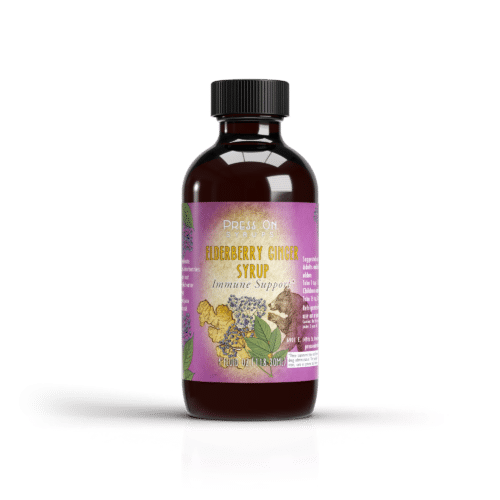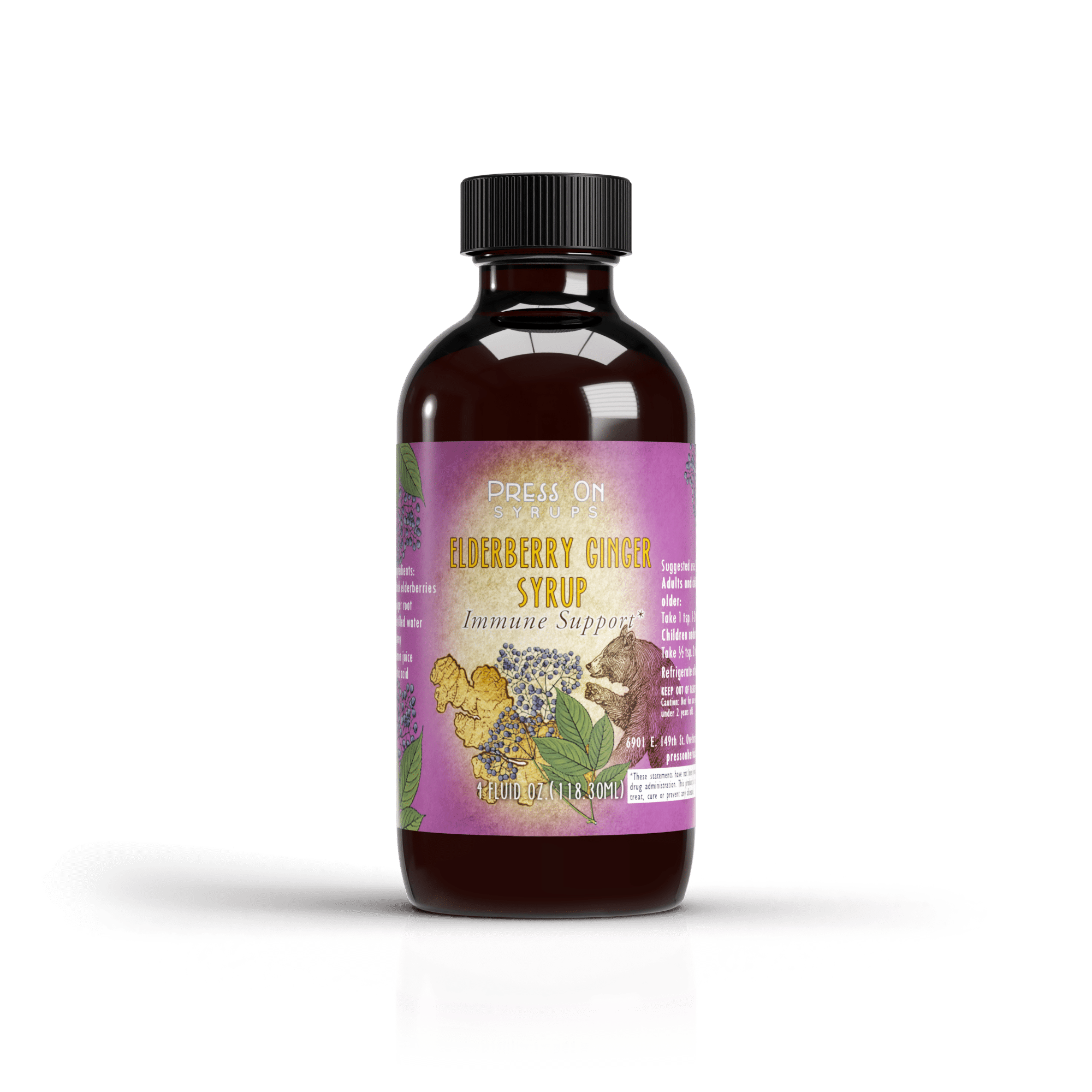All Syrups
Herbal syrups are concentrated liquid extracts derived from various herbs, which are then combined with a sweetener like honey, sugar, or even glycerin to produce a pleasant taste. This combination not only makes the syrup enjoyable to consume but also serves as a natural preservative, thus prolonging the shelf life of the herbal preparation. Herbal syrups are versatile and can be used to address a range of health issues, from alleviating the common cold and soothing coughs to supporting digestion and boosting the immune system.
The creation of herbal syrups involves a straightforward yet precise process. Initially, the chosen herbs are infused in water to extract their beneficial properties. This is usually achieved by simmering the herbs to form a robust herbal tea or decoction. After the infusion is complete, it is strained to remove any solid particles, ensuring a smooth consistency. A sweetener is then introduced to the mixture, which is subsequently simmered again until it achieves a syrupy texture. This method ensures the retention of the herb’s active compounds while enhancing the syrup’s flavor and shelf life.
The selection of herbs for syrup production largely depends on the intended health benefits. Some of the most commonly used herbs include:
- Elderberry: Celebrated for its immune-enhancing properties, elderberry syrup is particularly popular during the cold and flu seasons. Its rich antioxidant content also contributes to overall health and wellness.
- Ginger: Known for its potent anti-inflammatory and digestive benefits, ginger is a favored choice in syrups used for alleviating nausea, supporting digestion, and soothing inflammation.
- Thyme: With its natural respiratory-supporting properties, thyme syrup is effective in calming coughs and clearing mucus from the respiratory tract, offering relief from various respiratory ailments.
- Licorice Root: Renowned for its soothing effects on the throat and digestive system, licorice root is a valuable ingredient in syrups aimed at easing throat discomfort and enhancing digestive health.
Herbal syrups offer a multitude of health benefits, making them a valuable addition to the arsenal of natural medicine. Here are some of the key advantages:
One of the primary benefits of herbal syrups is their ease of consumption. The incorporation of a sweetener results in a palatable taste, which is particularly appealing to children and those who may be hesitant to take herbal remedies in other forms. This palatability facilitates the integration of herbal medicine into daily health routines, ensuring consistent and effective use.
Syrups provide a concentrated form of herbal extracts, ensuring that each serving delivers a potent dose of the herb’s active compounds. This concentration can lead to quicker and more pronounced effects compared to other forms of herbal medicine, such as teas or capsules, making syrups a highly effective mode of delivering herbal benefits.
The versatility of herbal syrups allows them to be employed for a variety of health concerns. Whether the goal is to bolster the immune system, soothe a sore throat, enhance digestion, or address respiratory issues, there is likely an herbal syrup that caters to those needs. This adaptability makes herbal syrups a practical and efficient solution for numerous health challenges.
Elderberry syrup is among the most popular herbal syrups, widely recognized for its immune-boosting properties. It is frequently utilized as a preventative measure during the cold and flu season. Scientific research has indicated that elderberry can help reduce the duration and severity of cold symptoms, making it a staple in natural cold and flu prevention.
Ginger syrup is highly valued for its anti-inflammatory and digestive properties. It is often used to alleviate nausea, support digestion, and reduce inflammation throughout the body. Many individuals turn to ginger syrup as a natural remedy for motion sickness or to calm an upset stomach, appreciating its gentle yet effective action.
Thyme syrup serves as a natural remedy for respiratory issues. The herb contains compounds that can help relax the muscles of the trachea and bronchi, thereby opening the airways. This makes thyme syrup particularly effective in easing coughs and clearing mucus from the respiratory tract, offering relief from respiratory discomfort.
Herbal syrups can be consumed directly by the spoonful or added to beverages such as tea or water. The appropriate dosage varies depending on the specific syrup and the condition being addressed, so it is important to adhere to recommended guidelines or consult with a healthcare professional for personalized advice.
To ensure the potency and freshness of herbal syrups, they should be stored in a cool, dark place. Refrigeration can further extend the shelf life, especially for syrups made with fresh ingredients. It is crucial to regularly check for any changes in taste or smell, which may indicate spoilage, and to discard the syrup if any signs of spoilage are detected.
Creating your own herbal syrups at home is a rewarding endeavor that allows you to tailor remedies to suit your specific health needs. Here is a basic guide to get you started:
- Choose Your Herbs: Select herbs based on the health benefits you desire, considering both their properties and your personal preferences.
- Create an Infusion: Simmer the herbs in water to extract their beneficial compounds, ensuring a strong and effective infusion.
- Strain and Sweeten: Remove solid particles from the infusion and add a sweetener like honey or sugar to enhance flavor and preservation.
- Simmer Again: Heat the mixture until it reaches a syrupy consistency, concentrating the herbal benefits in a palatable form.
- Bottle and Store: Pour the syrup into sterilized bottles, sealing them properly, and store in a suitable location to ensure longevity and effectiveness.
While herbal syrups are generally safe, it is important to be mindful of any allergies or sensitivities to specific herbs. Individuals who are pregnant, nursing, or have chronic health conditions should consult healthcare providers before using herbal syrups to ensure safety and compatibility with their health status.
Herbal syrups offer a timeless approach to natural medicine, blending the healing power of herbs with the pleasantness of syrup to create effective and easy-to-consume remedies. Whether you are dealing with a cold, seeking digestive support, or aiming to enhance your immune system, there is likely a herbal syrup that can assist. By understanding how to make and use these syrups, you can harness the benefits of herbal medicine and support your health naturally, paving the way for a more holistic approach to wellness.

 Elderberry Ginger Syrup
Elderberry Ginger Syrup 

